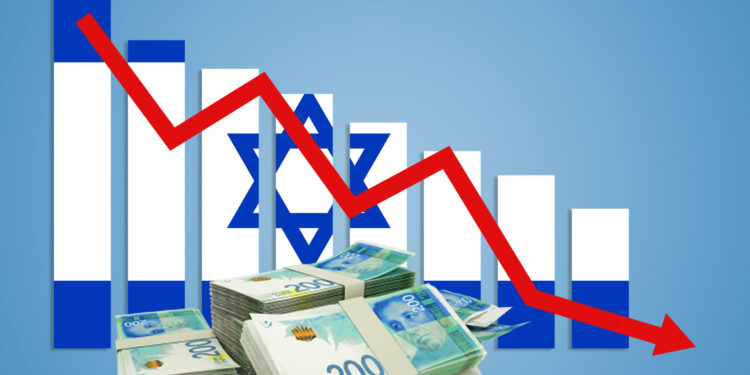Data from the Israeli Central Bureau of Statistics showed today that the occupation economy grew more slowly in the third quarter of the year than initially expected.
Growth is expected to decline sharply in the fourth quarter due to the war launched by Israel on the Gaza Strip since the seventh of last October.
GDP grew by 2.5% year-on-year in the July-September period compared to the previous three months, and the previous estimate of 2.8%.
On a per capita basis, GDP grew by only 0.6%.
It is expected that Israel’s GDP growth will reach only about 2% in the whole of 2023, compared to 6.5% in 2022, partly due to the negative impact of the war.
As for growth estimates in 2024, they depend on the duration of the war and the extent of the possibility of it expanding to include other confrontation fronts in neighboring regions, according to what Reuters reported.
The Research Division at the Bank of Israel expected that the Israeli economy would grow by 2% as well.
The Research Division’s forecasts estimate that the war will consume, on average, about 3% of GDP by the end of 2024.
The Governor of the Bank of Israel (Central Bank), Amir Yaron, expected last month that the costs of the war on the Gaza Strip would reach 10% of the gross domestic product, which is equivalent to 52 billion dollars.
Supplementary budget
The data comes a few days after the Knesset approved adding NIS 25.9 billion ($7 billion) to its budget to help cover the costs of the Gaza war, such as compensation for reservists and emergency housing for internally displaced people.
A Knesset spokesman said that the amendment increased the 2023 budget to 510 billion shekels ($139 billion).
Israel approved the original 2023 budget, along with the 2024 budget, last May.
The Israeli Ministry of Finance said last week that it recorded a budget deficit of 16.6 billion shekels ($4.5 billion) in November due to financing the war.
He added that as a percentage of GDP, the deficit rose during the previous 12 months to 3.4% last November from 2.6% last October.
In the same context, the Statistics Office said last month that the unemployment rate rose to about 10% last October, after the war led to the displacement of tens of thousands of people who were living near the borders of the Gaza Strip.



